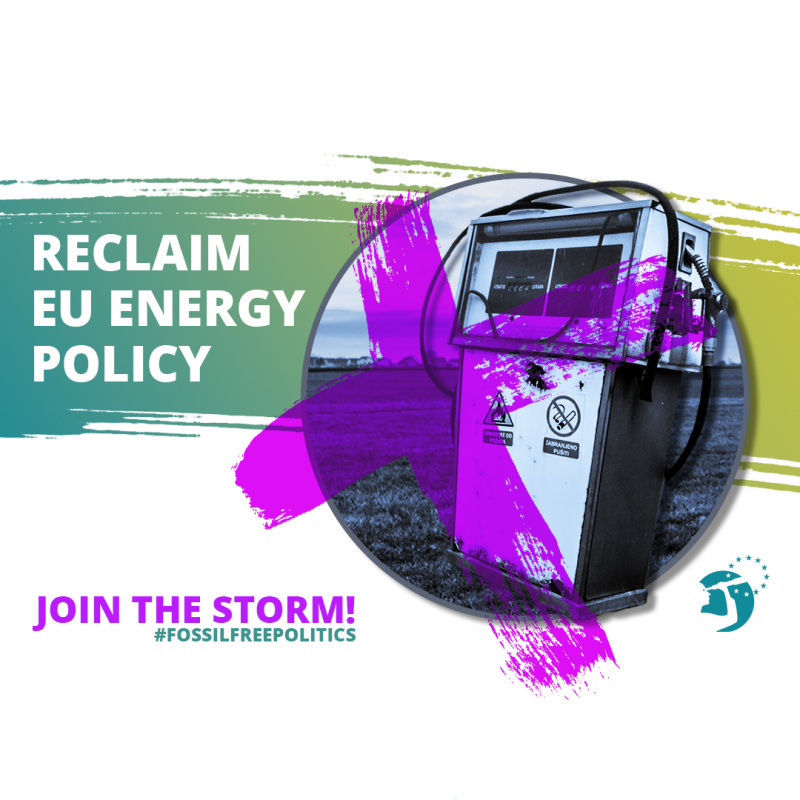
Fossil Fuel giants shape EU’s response to the energy crisis
Lobby watchdog Corporate Europe Observatory (CEO) has obtained recent meeting documents from the European Commission (EC) that reveal that major fossil fuel companies are influencing the EU’s response to the energy crisis.
Minutes reveal that CEOs of six big energy companies – Shell, BP, Total, ENI, E.ON and Vattenfall – met President Von der Leyen and Energy Commissioner Simson twice in three days, less than two weeks after they released their RePowerEU communiqué laying out the EU’s response to Ukraine. They agreed to set up an industry Task Force and determine which measures were “feasible”.
The meetings, which took place on 21 and 23 March, were the latest in a long line between the European Roundtable of Industry (ERT) and its CEO-level members with President Von der Leyen since the invasion of Ukraine.
In practice, this means the EU’s plans to get off Russian gas are being shaped by the very same companies that have kept the continent hooked on it until now. A fleshed-out version of RePowerEU is expected on 18 May with big energy CEOs pushing for it to lock the EU into decades more gas.
Pascoe Sabido, Researcher and Campaigner at the Corporate Europe Observatory, said:
“We’re facing a devastating climate emergency and a huge cost-of-living crisis, but rather than set up an energy poverty task force, the Commission is bringing in fossil fuel CEOs and experts who are telling it not to introduce a price cap or intervene in the energy market. The task force should be scrapped. If the Commission wants the industry’s views, then they must set up a public hearing so we can all hear what they have to say, rather than keeping it behind closed doors.
“The European Commission has been in bed with these corporations for decades. If we want to end our reliance on gas, Russian or otherwise, then we need to end the relationship between the fossil fuel industry and decision-makers, cutting fossil fuel interests out of our political system. In short we need fossil free politics.
ENDS
Notes to editors:
*See the Commission summary of the meeting on 21 March here and the 23 March here
*Minutes from the meetings two weeks after RePowerEU was announced (8 March) show fossil fuel CEOs offered President Von der Leyen and Energy Commissioner Kadri Simson their steer on the direction they should now take, with all sides agreeing to create a Task Force with company experts to determine “what is feasible” in terms of the Commission’s “envisaged measures”.
*For more information on the ERT and its meetings with the European Commission, see the background note (contact CEO).
*For more information on the Fossil Free Politics campaign, see here.
*For more information on how the gas industry, through ENTSO-G, was instrumental in increasing Europe’s dependence on Russian gas and is in line to do the same with RePowerEU, see here. The EU-Russia advisory group has also been involved in facilitating Europe’s Russian gas dependency since 2014. The EC website showed until a few weeks ago that it had been discontinued in 2014 after the annexation of Crimea. But on the administrative and business level it was very active until last month. See background note for more information.
Key points from the meeting:
• CEOs explain how “Europe pays a high price for energy because we are very dependent on imports”, despite they themselves being responsible for by lobbying for more gas and against alternatives.
• “Request for a coordinated EU approach, maintaining market mechanisms and speeding up administrative and permitting procedures”.
• “Most (not all [energy CEOs]) guard against fiddling with market mechanisms, which would have unintended consequences.”
• “Majority says a gas (TTF) price cap will be problematic,” despite such measures potentially greatly helping gas consumers.
• “President Biden cannot impose deliveries. Best option is to envisage long term contracts.” This would lock the EU into importing fracked gas for a decade or more
• They discussed the “importance of energy financial markets”, which provided bonanza Q1 profits for Total, BP and other fossil fuels companies
Key roles of the agreed Task Force, as laid out in the minutes:
• “Provide detailed information on markets and on what is feasible in terms of envisaged measures”, allowing oil and gas CEO to set the limits of what is or isn’t possible in RePowerEU
• Discuss “where can additional [gas] supplies come from.” In practice it means supporting other repressive regimes (Egypt, Azerbaijan, Qatar) and imports of fracked gas from the USA,
• Discuss “what are possible bottlenecks” in gas supply, i.e. which new gas infrastructure projects should be built, despite them not coming online for years and locking the EU into future gas dependency.
